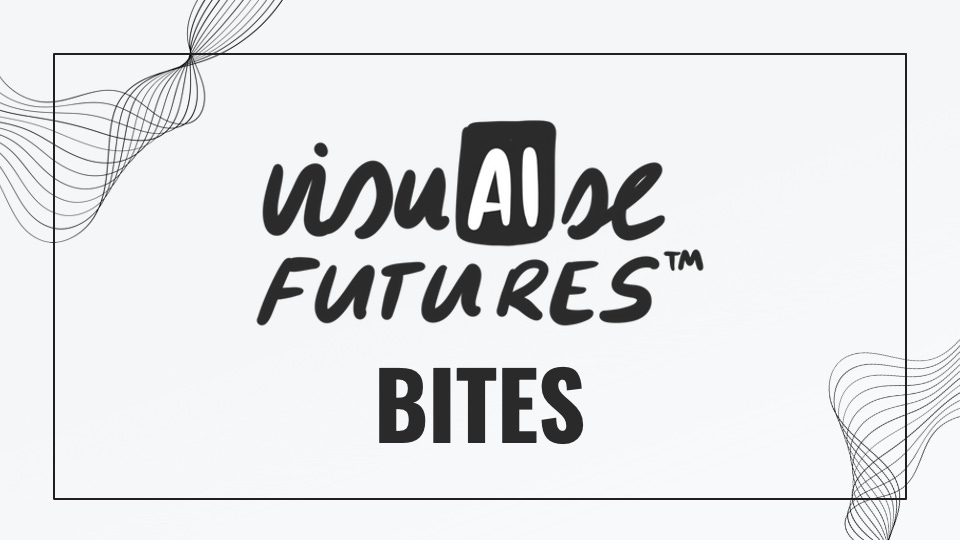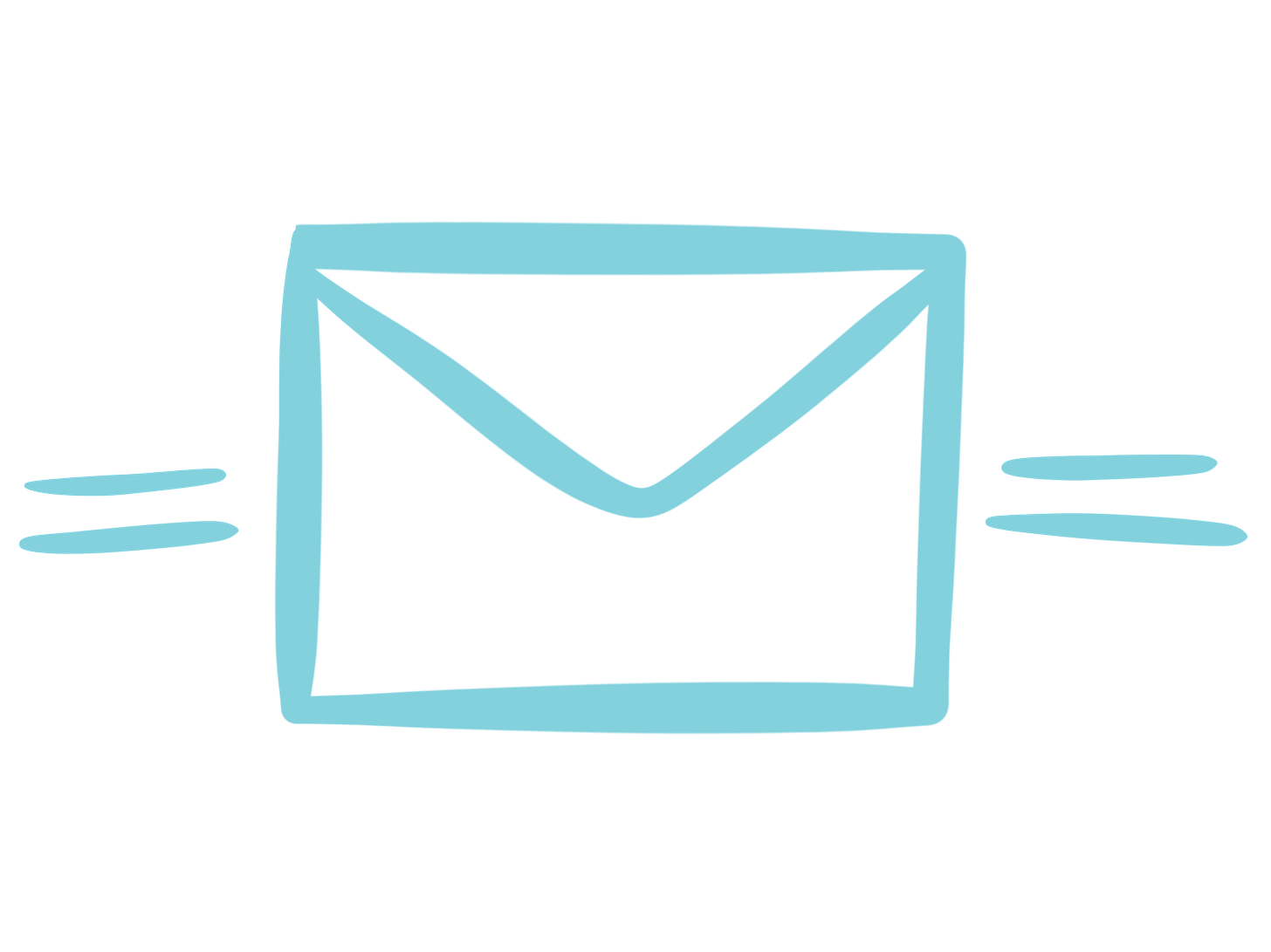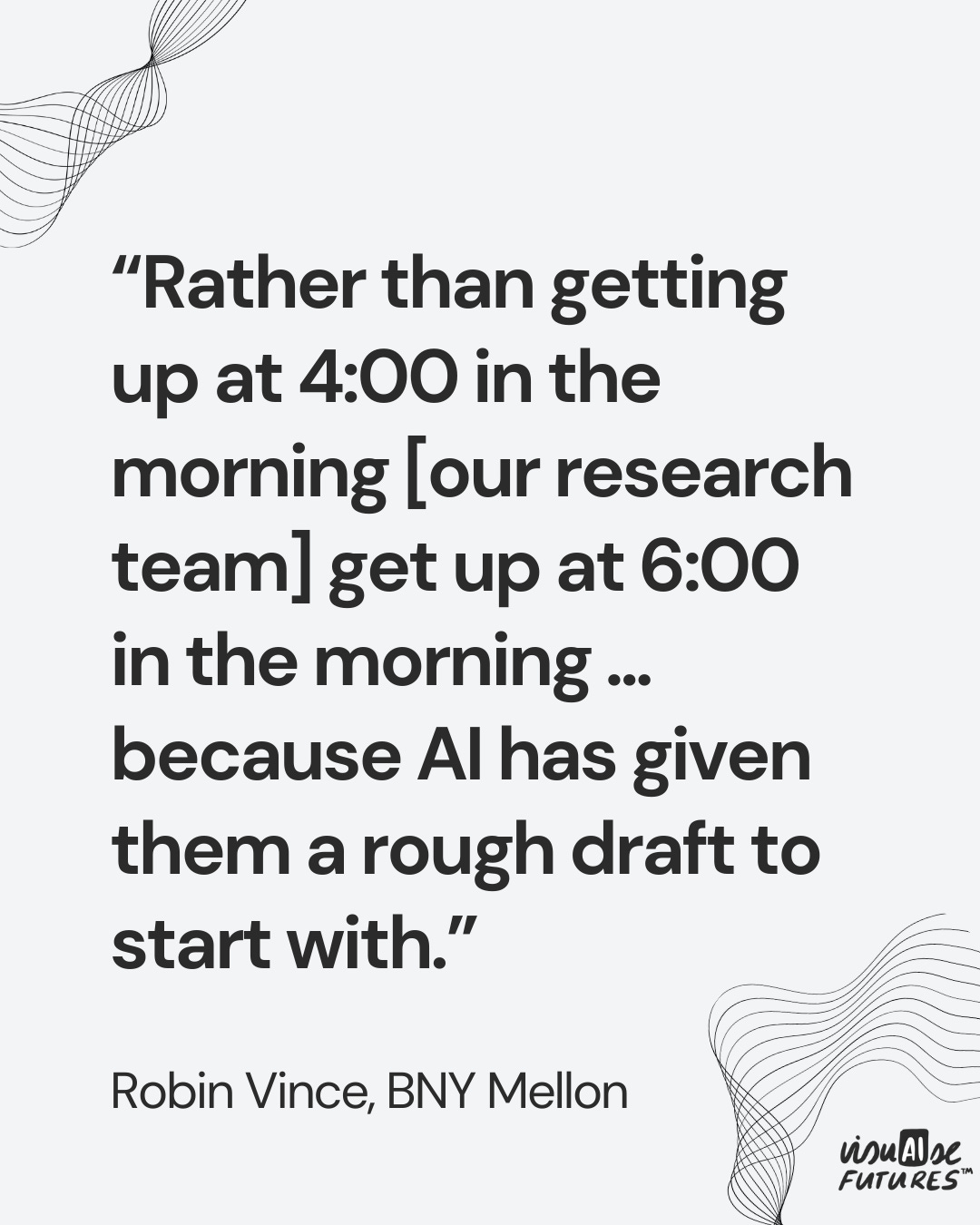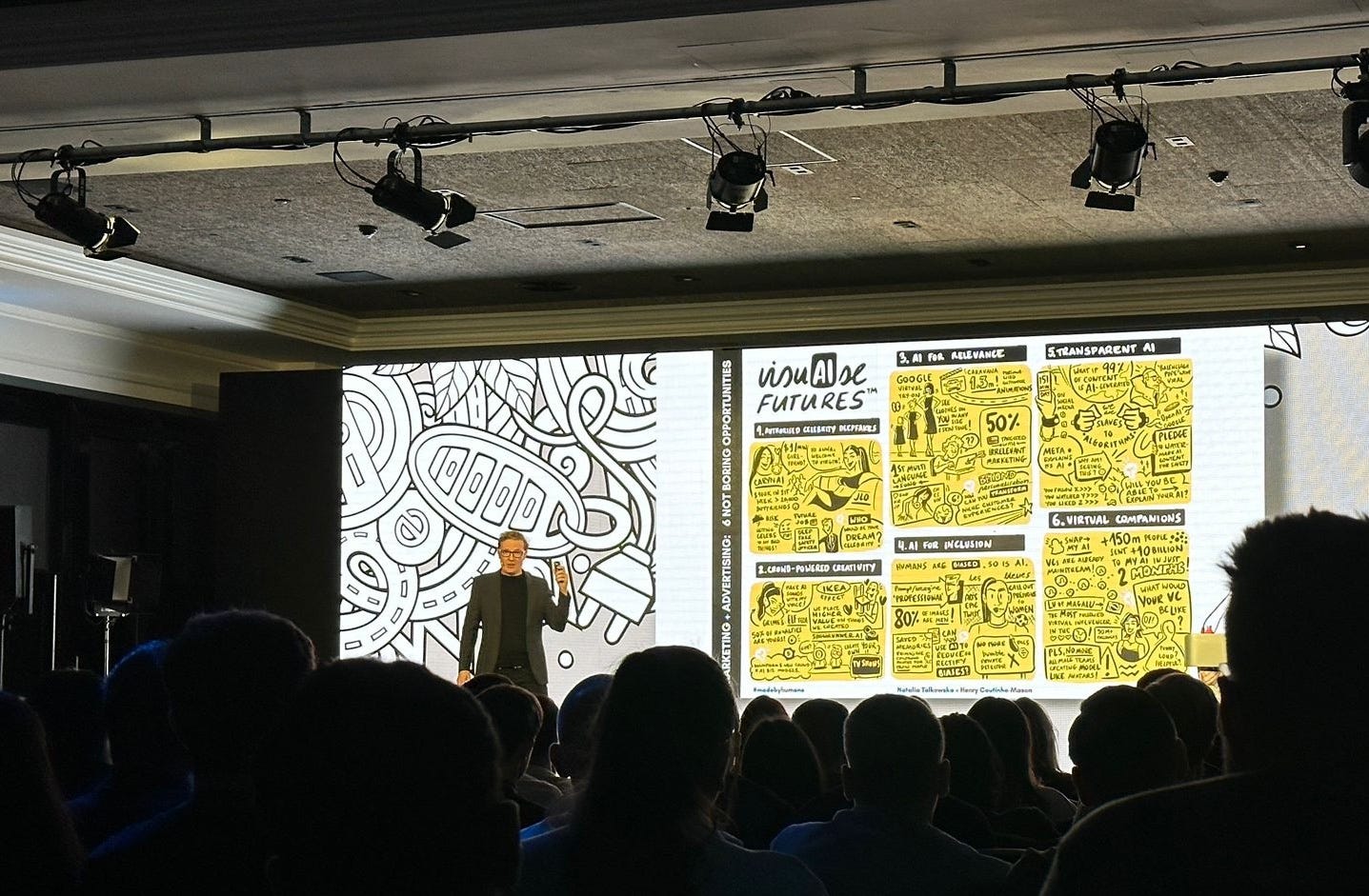Each week we go beyond the headlines and explore what AI will mean – for people, for businesses, the future of work, learning and culture, and more.
Use these examples to ask better questions about “where next?”, and why putting people’s needs at the heart of your AI strategy will be the key to success.
This week, learn from:
Limitless – and the benefits of limiting your early AI ambitions
Dove – another example of how to zig, while others zag
BNY Mellon – will AI make the future of investment banking “Less, But Better”?
🧠 Limitless – and the benefits of limiting your early AI ambitions
It’s clear that chatbots are going to be just a tiny part of our Gen AI future (quite possibly an inconsequential part, but that’s a discussion for another day). The bigger, and far more interesting question will be how Gen AI impacts the ‘real world’. And one big open question there is “what comes after the smartphone?”
This week saw a couple of big stories in this area. First, Humane’s AI pin was finally released. Demoed at TED last year, this new $700 device promised to free users from their smartphones. Founded by two senior Apple designers, the startup raised $230 million. Then the reviews came in. The Verge’s headline: “not even close”. And then YouTube tech influencer Marques Brownlee (with 18.7 million subscribers) shared a video entitled simply, “The Worst Product I've Ever Reviewed…For Now”.
In contrast, this week also saw the announcement of the Limitless Pendant. Far less ambitious, the $99 device will initially focus on continuously recording everything you hear, and using AI to help you benefit from that in the future.
I wrote a year ago about Rewind’s (Limitless’ predecessor company) vision for perfect memory in Our Coming AI Superpowers, saying:
What would a future normal where we all have perfect memory look like? The obvious impact is that it will increase people’s productivity, by allowing them to ‘outsource’ their memory. Note taking may become as obsolete as map reading.
What new social norms will this create? Smartphones have become accepted (if not always fully welcomed) appendages, because we crave the superpowers they grant us. Smart glasses never made that leap forward – their wearers mocked as ‘Glassholes’.
In the future, will the benefits of perfect memory mean that people accept ubiquitous recording of their daily lives?
We’re about to find out the answer to that final question. But beyond the wider social implications, there’s a hugely valuable practical lesson for executives dreaming of their next futuristic AI-powered product.
Shooting for the moon is high risk. Launching a device that changes people’s behaviour is hard. You can massively increase your odds of success if you focus on doing one thing, and doing it well. Especially if that means you can bring the price down. In Limitless’ launch video, when revealing the price, founder Dan Siroker takes a dig at Humane’s pricing, saying the Limitless pendant will cost “just $699… wait, that doesn’t look right. Let’s drop the 6. Just $99, it’s cleaner”.
This price tag makes it far more of an impulse purchase (indeed, given my terrible memory for things I hear, I instantly pre-ordered one!). And you can bet I’ll be a lot more forgiving towards a device that costs $99 than one costing seven times that.
💡Don’t try and do too much. What limited use case can you solve with AI, today?
🚫 Dove – another example of how to zig, while others zag
“Dove will never use AI to create or distort women’s images.”
That’s the pledge at the end of the video to mark 20 years of Dove’s famous campaign for Real Beauty.
As the accompanying press release states, “the rise of AI is a threat to women's wellbeing, with 1 in 3 women feeling pressure to alter their appearance because of what they see online, even when they know it's fake or AI generated.”
Last week, we wrote about Inqwire celebrating that its software was “100% LLM-free”.
Last year, in VisuAIse Futures: Marketing & Advertising we highlighted Nikon’s Natural Intelligence and the Red Cross’ Not Generated By AI campaigns and said,
“As AI takes over our feeds, expect bold brands to lean into campaigns that are proudly AI-free.”
Note: interestingly, Dove hasn’t completely rejected AI. Instead, it has created the Real Beauty Prompt Playbook, a guide to creating images that are authentic when using AI image generators. Clever.
😴 BNY Mellon – will AI make the future of investment banking “Less, But Better”?
There’s an optimistic case to be made that AI and robots will make the future normal of work “Less, But Better” (I make that exact case here ;)
The NYT asked recently whether the ‘grunt work’ that is a rite of passage for junior finance workers will soon just be done by AI instead. Certainly, the quote above from the CEO of BNY Mellon, Robin Vince, suggests a future of work that is ‘less, but better’.
However I can’t help but think that things probably won’t play out exactly like this. Of course, work is about outcomes – every boss is looking at whether AI can deliver better results for less money.
But work is also about more than just its final outcome. In most domains, doing the work is how we develop the insight and experience to know what the ‘right’ answer might be. Until we have 100% reliable and 100% autonomous AI agents, the risk is that too much delegation to AI will end up degrading people’s ability to successfully work from the drafts it creates.
There are also complex social and cultural dynamics at play. Work is deeply connected to people’s sense of status and identity. I’d bet there’s a not-insignificant number of bankers who relish the levels of endurance required to ‘make it’, and would reject the extra two hours in bed if it reduced their salaries and made their roles less daunting (and therefore also less prestigious).
💡What does a future of work that’s “Less, But Better” look like for you and your staff?
About VisuAIse Futures
VisuAIse Futures is a graphic collaboration between 👩🎨 Natalia Talkowska and 🕵🏻♂️ Henry Coutinho-Mason – two curious humans with 20+ years collective experience of helping large organisations navigate change.
We love helping companies increase the reach and impact of their thinking, so if you want to bring us to run a workshop at your next AI event or meeting, and co-create a custom graphic for your organisation – then let’s chat!
A few upcoming sessions & events:
AI:CX, Brazil - 23 April
Future Hospitality Summit, Saudi Arabia - 30 April
Climate Impact Summit, London - 7-8 May
GenAI4Pharma, London - 14 May
Cannes Lions, France - 17-21 June
Knowledge Transfer Partnership, Bournemouth - 20 June
“Inspiring, energetic, and entertaining. Henry's session for 2,000 senior executives from a Fortune 100 healthcare company received the highest rating from the attendees.” Brent Turner, Head of Strategy, Opus Events
“Natalia's fusion of AI storytelling and creativity foresight was so compelling that she remained the most talked-about speaker months after the event, underscoring the lasting impact of her insights." - Stephen Fletcher, Leaders Club CEO






